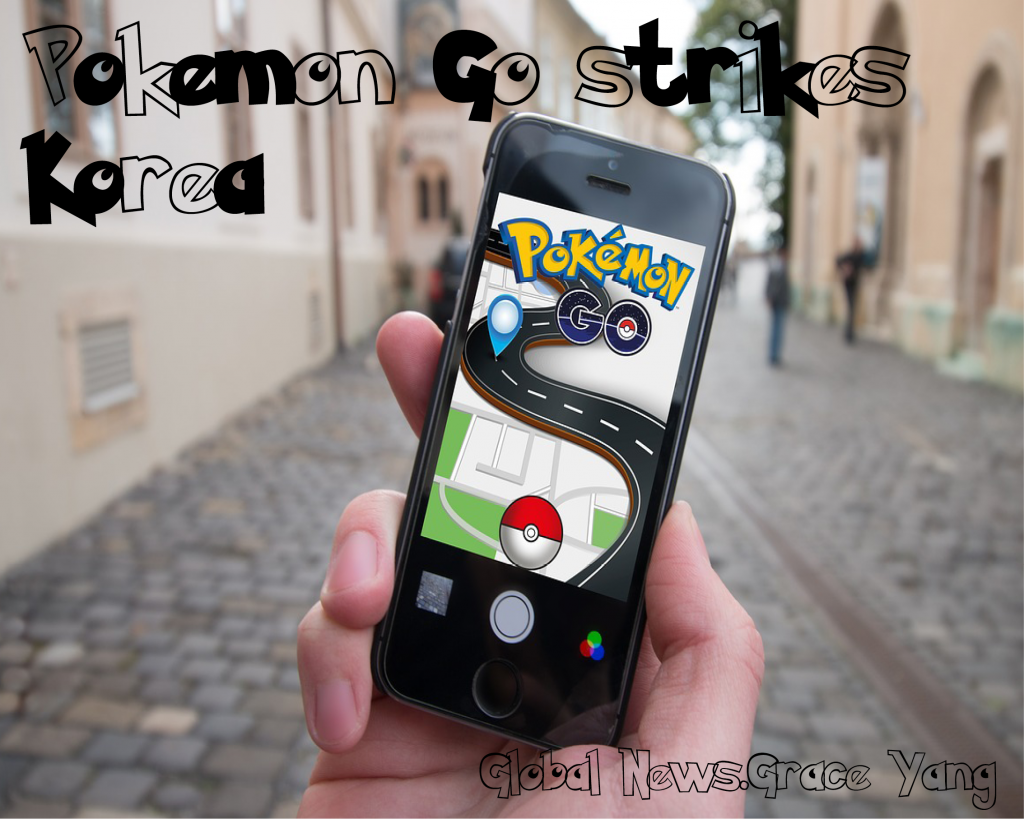Just when the craze over catching pokémons in America finally died down, it appears that people will be busy throwing pokémon balls again on the other side of the globe. On Jan. 24, Korea released the “Pokémon Go” mobile game, which already took the world by storm last summer with its GPS-based setting that involves gamers to walk to real-life locations and capture the creatures on their smartphones.
“The streets were dominated by people swiping their fingers across their screens to catch the pokémons,” said Sean Oh (11), a Pokémon Go player. “I think people here in Korea were not only eager to experience the Pokémon phenomenon that ran globally last summer, but also interested in the new GPS-based setting system.”
Several reasons contributed to the delay of a Korean release. Not only did the challenge of translating and updating with Korean language stand in the way, but the country’s restriction on the usage of Google Maps also added to the delay. According to Korea Times, although Korea is known for its intense gaming culture, including games such as StarCraft and the League of Legends, the issues revolving around national security against North Korea prevented the government from allowing a GPS-based setting. At time of its skyrocketing popularity of Pokémon Go in the US, there were growing tension between the two countries which resulted in more bans of websites, based on South Korea’s National Security Law.
“I wasn’t aware that the issue with national security played a huge role in preventing the launch of Pokémon Go,” said Stefanie Suk (11), another Pokémon Go player. “Last year, a lot of Koreans visited Seok-cho in order to play the unofficial Pokémon Go game which soon got banned. But the fact that the government passed the GPS-based game now tells something about the current situation with North Korea.”
The general expectation was that the Pokémon Go would not be as successful in Korea as it has been in other places last year due to its delay and weather. Launched in the middle of January, Pokémon Go players have had to roam around the streets in sub-zero temperatures. According to Business Korea, however, the whole assumption was overturned when it reported that some 6.98 million South Koreans had downloaded and played the game only by the second of February. Despite its delay and the cold weather, Niantic’s decision to launch the game before the long New Year Lunar break in Korea has been a clever choice as people spent their holiday weekends out on the street to catch the Pokémon.
“Even during lunar break, streets were filled with people from diverse range of age roaming around to catch them,” said Eugenie Seok (11), a Pokémon Go player. “I came to realize how groups of friends and families spent more time together outside with this game. In a way, I think it definitely served to bond more people.”
Whether it may pull off another long-term hit in Korea still remains unsure. Yet it looks like the cold streets of Korea will indeed be jam-packed with Go Pokémon players for a while.

